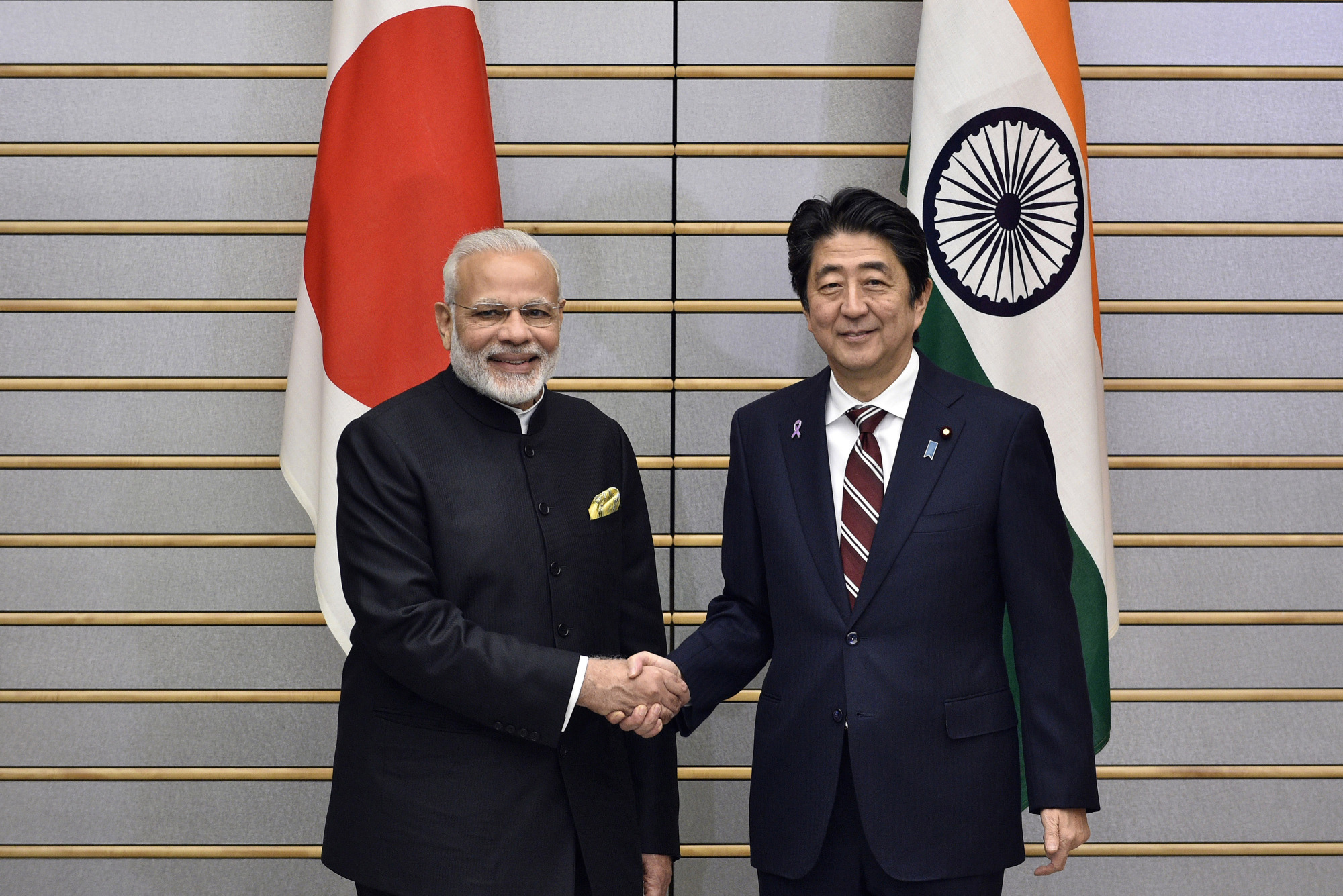The spotlight on the Beijing summit between Shinzo Abe and Chinese President Xi Jinping cannot obscure the more substantive discussions starting Sunday between the Japanese prime minister and his Indian counterpart, Narendra Modi, in Tokyo. Whereas Japan-China ties are unlikely to easily return to normal, the Abe-Modi summit will cement the Japan-India relationship as Asia's fastest growing and open the path to a military logistics pact to allow access to each other's bases.
The entente between Asia's richest democracy and its largest is a central pillar of the "free and open Indo-Pacific" strategy that U.S. President Donald Trump's administration is assertively pushing. Indeed, Abe is the architect of the "free and open Indo-Pacific" concept, which he formally unveiled more than two years ago while addressing African leaders in Nairobi.
Today, Japan and India serve as the linchpins for establishing an Indo-Pacific order based on the principles of the rule of law, free trade, freedom of navigation and peaceful resolution of disputes. The Trump administration openly acknowledges the critical importance of the Japan-India relationship to achieving a "free and open" Indo-Pacific.


















With your current subscription plan you can comment on stories. However, before writing your first comment, please create a display name in the Profile section of your subscriber account page.